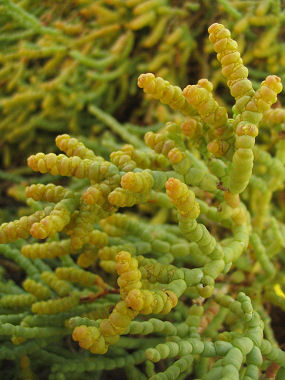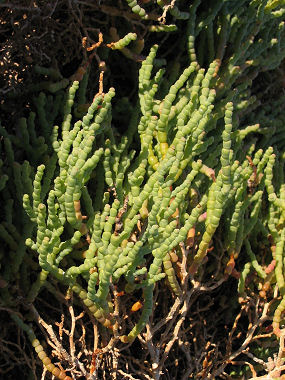Pickleweed is a member of the Goosefoot
Family.
 It
appears as a low, highly branching shrub and with each branch consisting
of fleshy, cylindrical segments. These succulent stems conceal the tiny
leaves and flowers of the plant which are hidden in the joints. It
appears as a low, highly branching shrub and with each branch consisting
of fleshy, cylindrical segments. These succulent stems conceal the tiny
leaves and flowers of the plant which are hidden in the joints.
|
Pickleweed can grow in a soil
salinity of up to 6%, though is typically found in salt playa
areas with approximately 2.4% salt. |
Pickleweed is a salt loving plant and
typically grows in areas of high salinity like salt marshes or salt
flats in areas with a continuous water source, often where no other
plant can survive. The secret to the plant's high salt tolerance is
found within its cells. First some salt is filtered out at the roots
of the plant by tiny sodium-potassium pumps within the cell membrane.
Other cells within the plant pump excess salt to storage cells
(vacuoles) at the tips of the segments. When the vacuole can not hold
any more salt, the cell breaks down, turns red and falls off, leaving
the younger cells to take over pumping and storing salt. The plant
gets its name from the facts that the fleshy stalks look vaguely
pickle-like and that it tastes salty, like a pickle.

|

